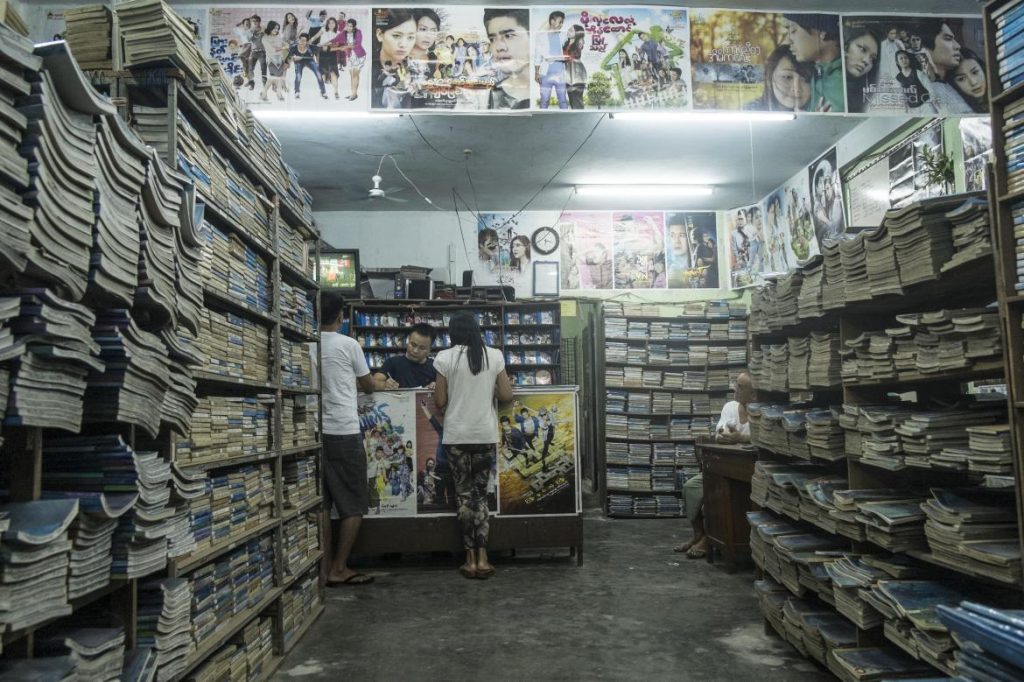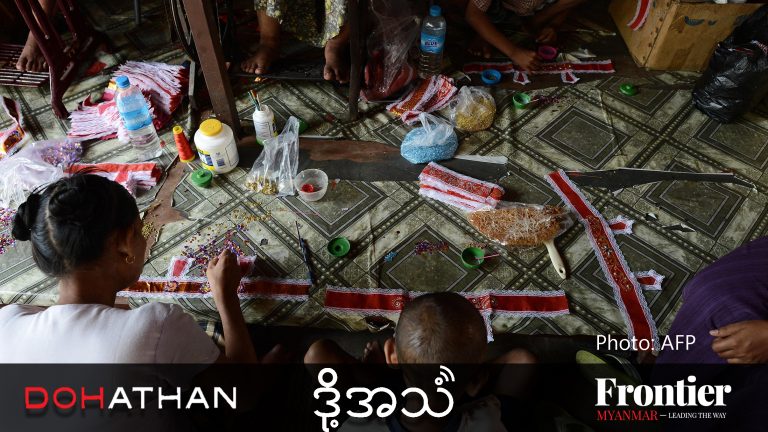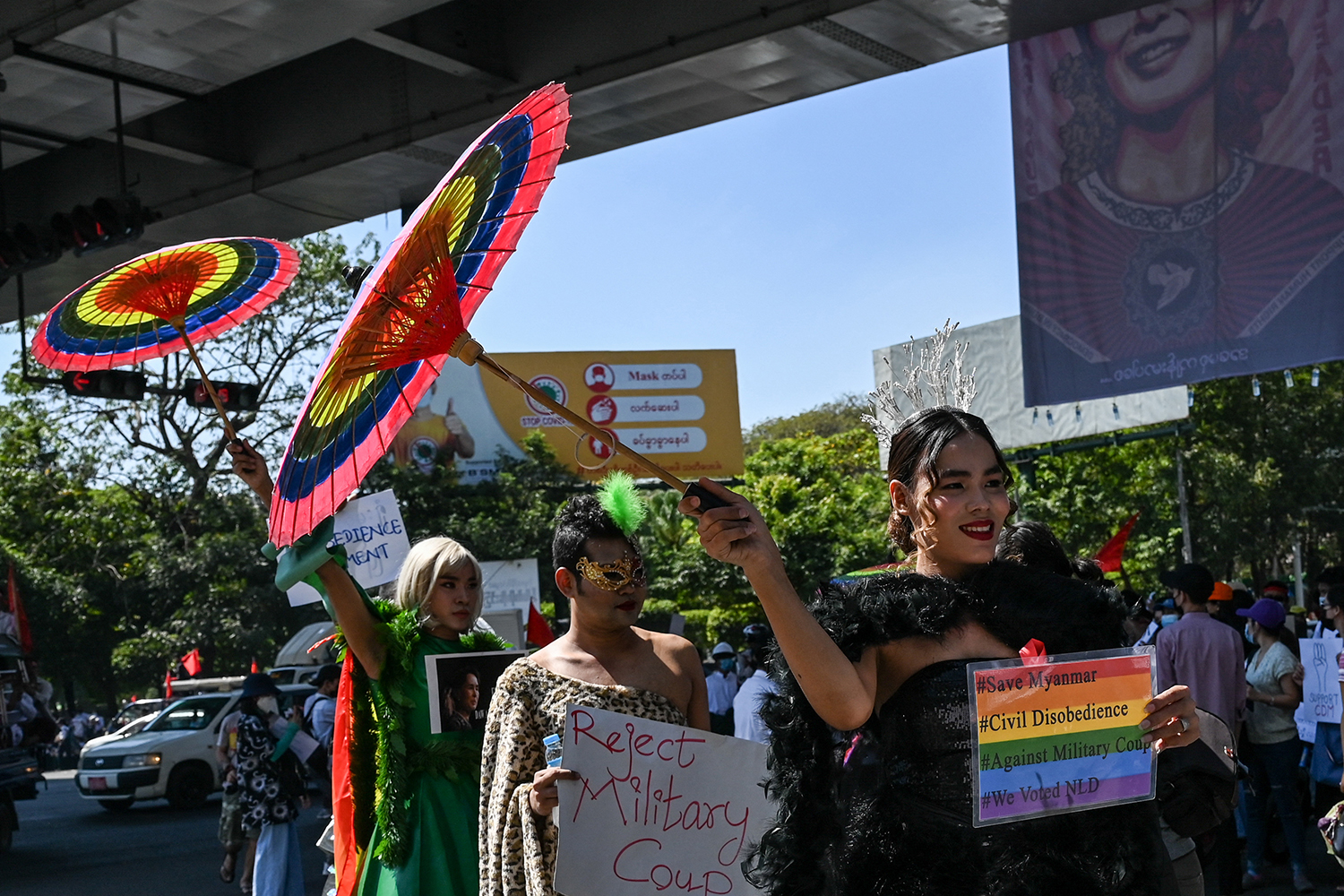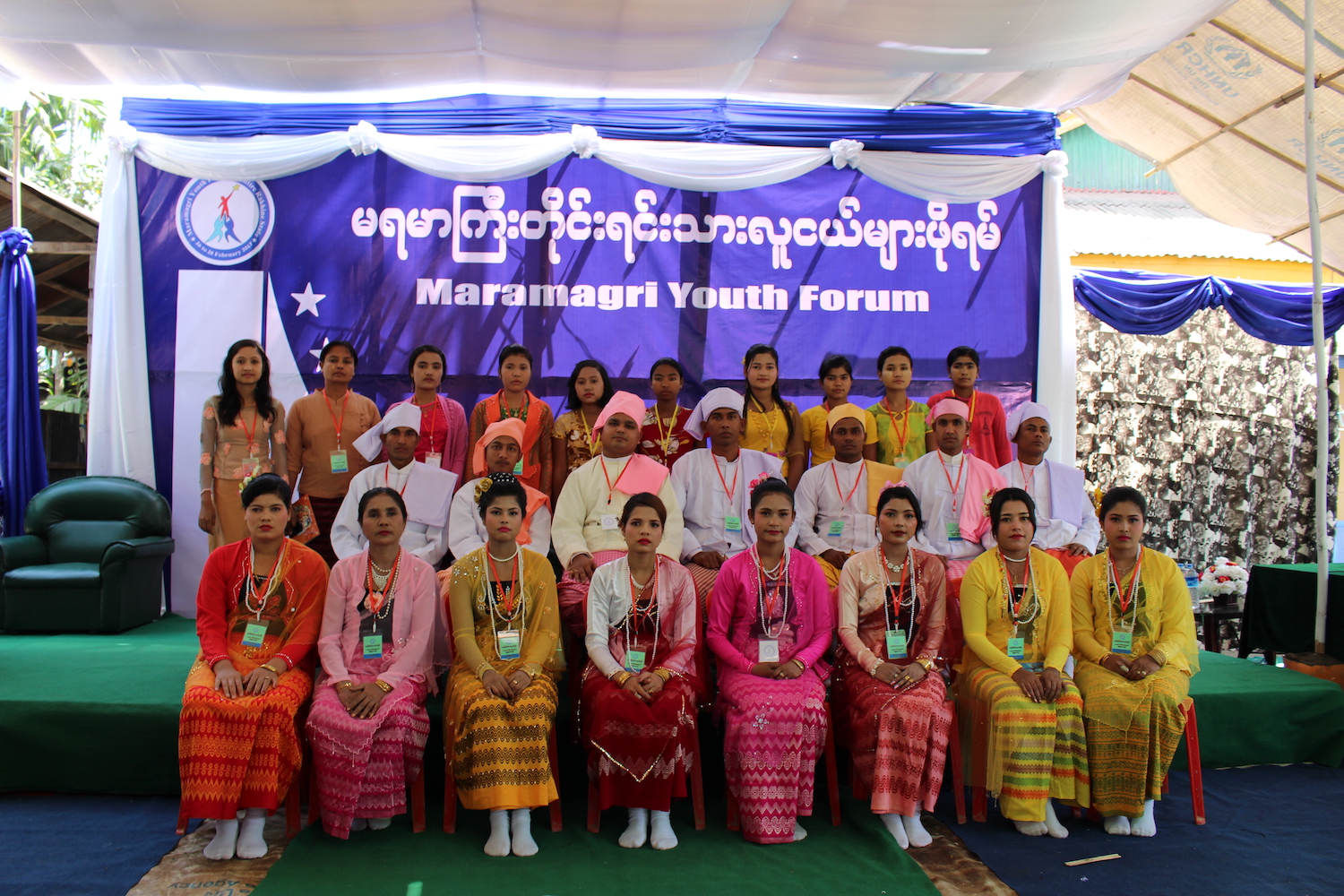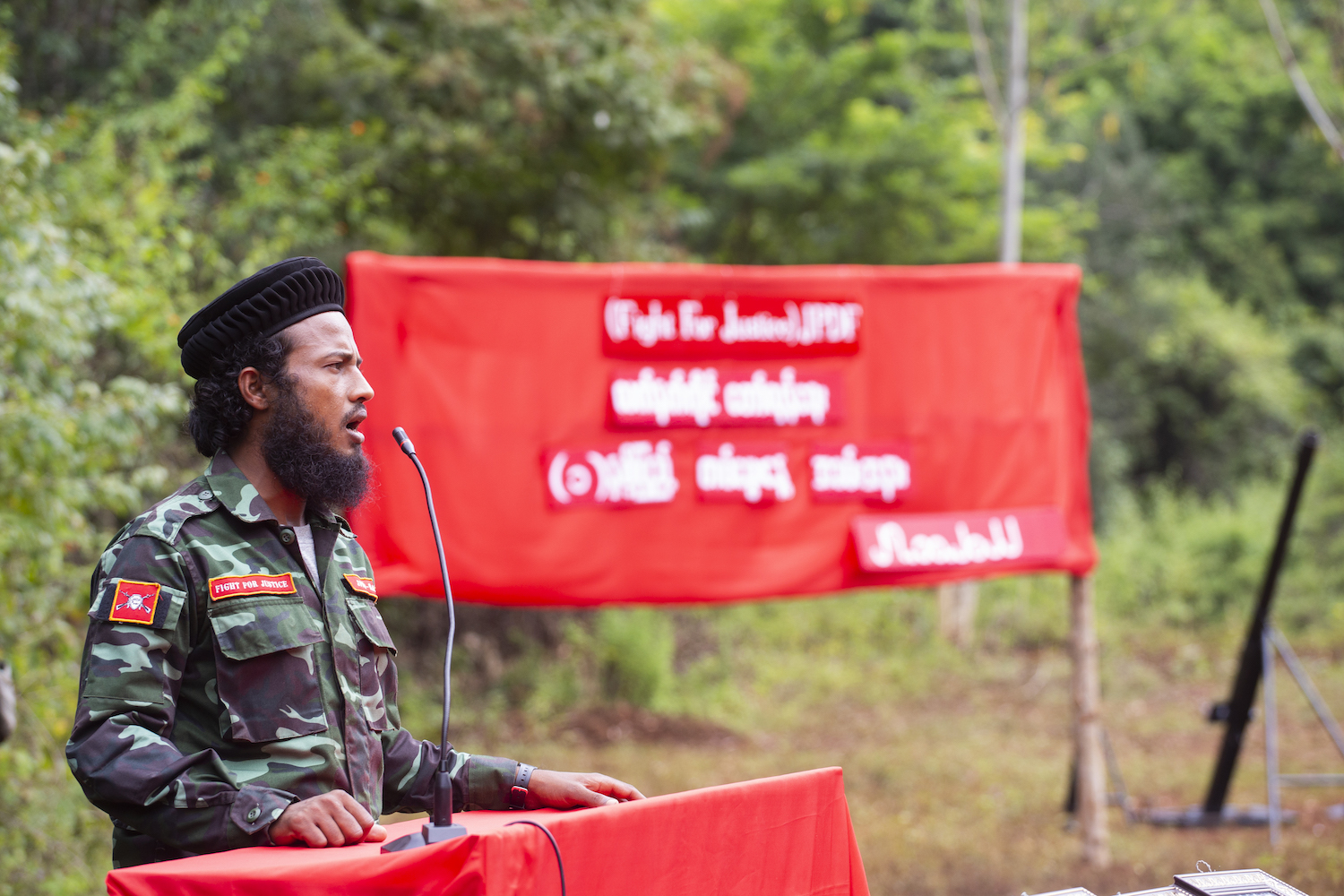Mainstream movies are sending the wrong message about ethnic minorities, foreigners and LGBT people.
By KYAW PHONE KYAW | FRONTIER
If you see a Chinese or Indian character in a Myanmar movie, they are almost certainly not playing the hero. More likely than not, they are jokers or villains. Ethnic minorities represented in films are frequently mocked for their accents when speaking Burmese, and are often portrayed as uneducated. If you were to take a lesson from the movie industry, you might come away thinking that homosexuals exist for your entertainment; comical sex-addicts boisterously dressed with over-the-top makeup.
These kinds of discriminatory caricatures, which reduce people to unflattering stereotypes, have been around in Myanmar’s movies for decades.
“If a character is Chinese, he will be lending money to others at high interest rates; if he is Indian, he is a servant,” filmmaker U Myo Zaw, also known as Rezaw, told Frontier. A member of the Myanmar Motion Picture Organization and joint secretary of the Myanmar Video Association, Rezaw has worked in the film industry for about a decade. Over the years, he has rarely seen anyone speak out against discrimination in popular culture. Stereotypes, he said, are “deeply rooted within people’s thoughts.”
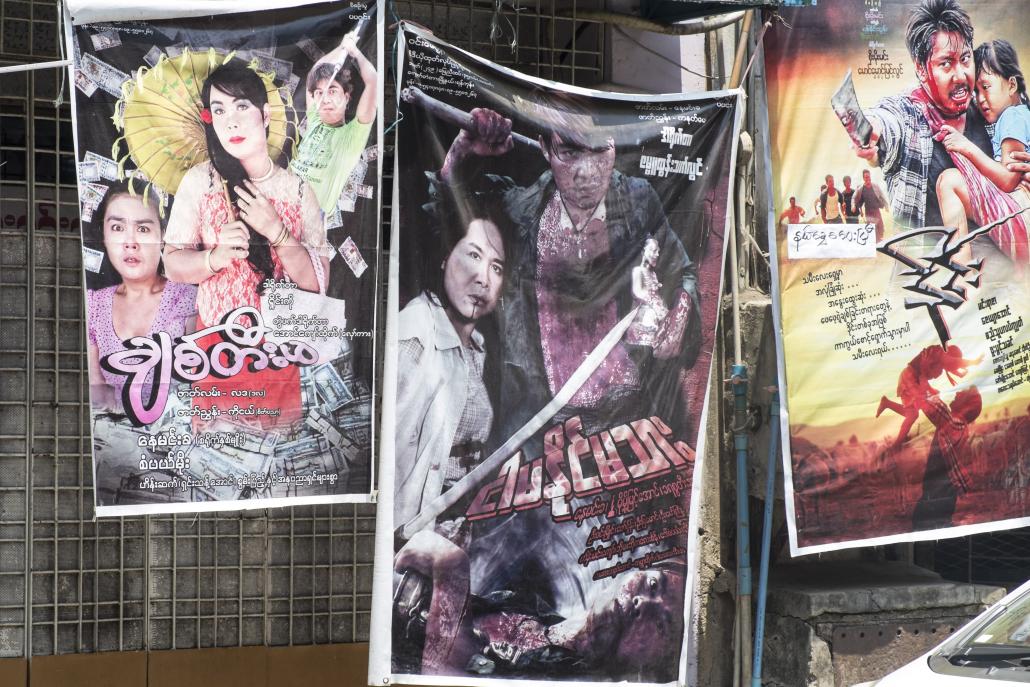
Vinyl movie posters for Burmese feature films. (Teza Hlaing / Frontier)
Support more independent journalism like this. Sign up to be a Frontier member.
There are abundant examples of discrimination in films and videos produced in Myanmar, and popular reaction sometimes sides with bigotry, instead of against it. In September 2013, viewers from Rakhine State were enraged by a movie titled “Kyaung”, in which the main character suggested to another that his “Rakhine wife might be sleeping with a Bengali”.
Villagers launched campaigns calling for boycotts of the film, its lead actor Myint Myat, and the director, Nay Paing. This incensed reaction shows that ideas presented in popular culture are sometimes absorbed by viewers, aggravating existing prejudices.
In a way it’s even more disturbing when no one reacts. The recent comedy “The Queen of the Ward” portrays homosexuals and people of Indian descent as a laughing stock, but few seemed to take notice of the film’s discriminatory language. Ko Aung Myo Min, director of the LGBT rights group Equality Myanmar, said he was saddened to see scenes that reduced people to tropes.
“In most movies, directors present gays as being wrong-headed, later changing their minds and living right, being a man,” Aung Myo Min told Frontier. “This is not realistic. Being gay is not a concept, but a kind of natural state. There are many consequences to misleading the public through movies. Families become violent and put blame on gay relatives, trying to make them change, to be a man again.”
“Filmmakers put in these scenes for humour,
but they no longer fit in with contemporary norms.
Most people in the industry don’t put enough effort into their jokes.”
Ko Nay Lin Htike, a LGBT activist and program coordinator of the rights group Colors Rainbow, also took issue with popular portrayals of homosexuality, claiming that the image presented in movies mischaracterised and devalued the lives of gay people in Myanmar society.
“We are not sex-addicted people, but we are always described as though we think about sex all the time. There are many different kinds of gay people, but [filmmakers] always present one kind,” Nay Lin Htike said. “Some gays are ridiculous, and some contribute a lot to society, just like other people. But [most] filmmakers never create good gay characters.”
While filmmakers surely are responsible for the message they send to their viewers, the audience is also partly to blame for the persistence of bigotry in the media, according to filmmaker Ko Soe Moe Aung, co-founder of the Wathann Film Festival. He said that as long as audiences responded positively to prejudicial content, producers would continue churning it out to meet demand.
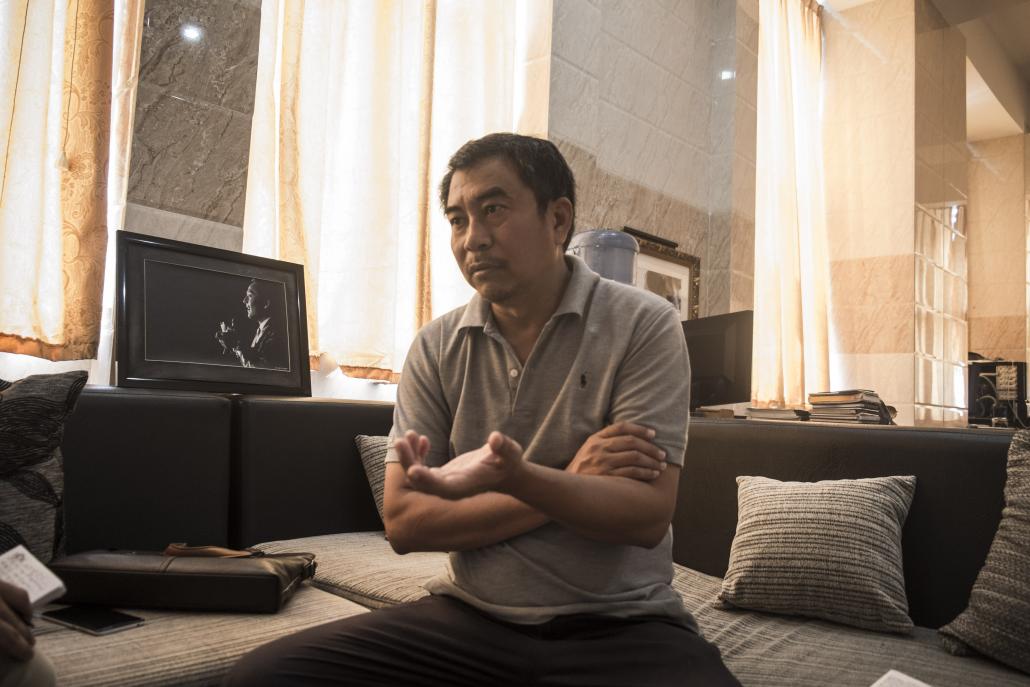
Director Rezaw says that people have rarely spoken out against discrimination in Myanmar’s film industry. (Teza Hlaing / Frontier)
“Audiences like movies with discriminatory themes, so it’s going to be hard to change,” he said, referencing a documentary about interfaith friendship, “The Open Sky”, which sparked public outrage and was pulled from the roster of human rights-themed film festival. The taboo subject matter did not fit the mould of what the general public wanted to see.
“The mainstream film industry is profit-oriented, so it can’t afford to make movies that people don’t accept,” he said. “You can see different perspectives in some documentaries and at film festivals, but the mainstream pictures only reflect what mainstream audiences want to see.”
Academy award-winning actress Eaindra Kyaw Zin agreed, but said she viewed Myanmar movie audiences as being one of two types. Urban audiences, she said, were more critical of mainstream media when it came to discrimination. Rural viewers, on the other hand, make up the bulk of movie audiences, and tended to object less to stereotypes.
Eaindra Kyaw Zin explained that “making movies is very limited” if you want to tap into the mainstream, because film producers “need to follow what the audience likes.”
At least one artist thinks it is time for both creators and consumers to update their message.
Comedian Bay Lu Wa, who is also an academy award-winning star, encouraged new filmmakers to be more creative and artful in their screenwriting, and to stop using offensive clichés as a crutch. He said that filmmakers often used stereotypes as an easy way out, winning a few laughs at the expense of others.
“Filmmakers put in these scenes for humour, but they no longer fit in with contemporary norms,” Bay Lu Wa told Frontier. “Most people in the industry don’t put enough effort into their jokes. But I don’t find discriminatory humour funny anymore.”
Title photo: Teza Hlaing / Frontier


